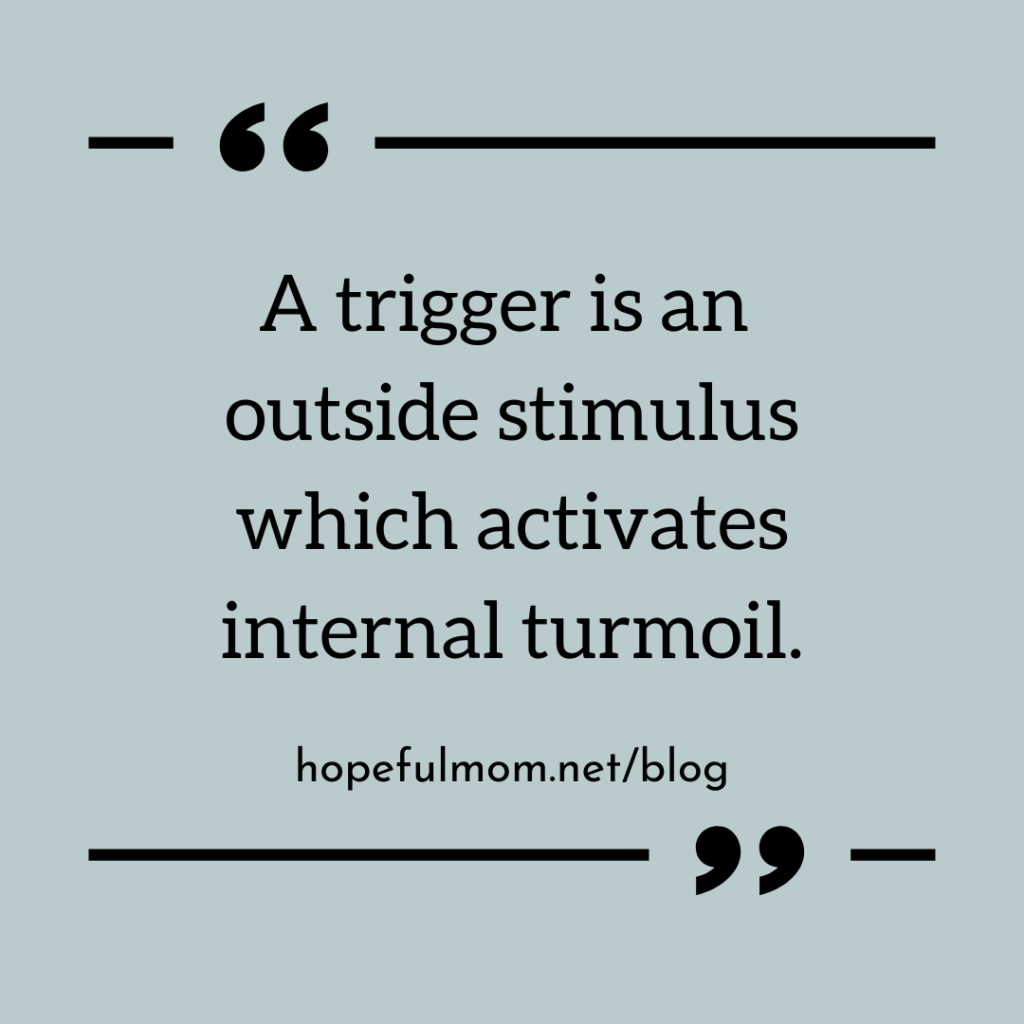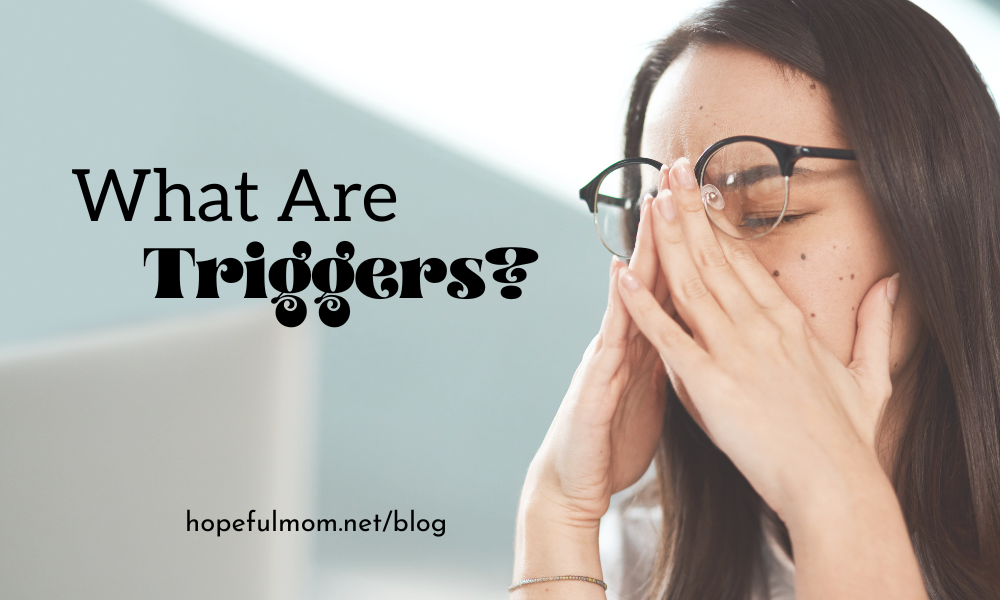My heart raced. My breathing shallowed and quickened. My thoughts were on high alert, throwing cautionary signals at me faster than I could process them. The room narrowed. I looked for an escape, a way to flee the situation I had encountered.
When I recognized the signs, I concentrated on my breathing, purposefully taking deep breaths, holding them, and releasing them slowly. I focused on something in the room, named it in my head and identified its features. Clock. Black and white. Numbers. Ticking. I told myself I was in no immediate danger. I did not need to escape. I said a prayer.
My heart slowed. My breathing regulated. My thoughts settled.
Definition
One of dictionary.com’s definitions of a trigger is, “anything, as an act or event, that serves as a stimulus and initiates or precipitates a reaction or series of reactions.”[i] The Merriam-Webster dictionary has the following as one of its definitions: “to cause an intense and usually negative emotional reaction in (someone).”[ii] These types of triggers require an object, idea, thought, or memory—something—to set them off.
To further understand, think of the trigger on a gun. When the trigger is pulled, an action is initiated. The trigger, when activated, starts the process that causes the eventual outcome. The difference though, is that typically, when a trigger on a gun is pulled, it’s on purpose.
When referring to triggers as they relate to trauma or an unpleasant occurrence, we’re caught off guard. The trigger is “pulled” unintentionally. An outside stimulus triggers internal turmoil.

When I had chronic back pain, I suffered minor panic attacks when I walked into rooms with rows of uncomfortable chairs. I was afraid of being stuck in the middle, enclosed by people on both sides, unable to stand and stretch my back if necessary. Even though I don’t have that type of pain anymore, I still hesitate when I see long rows of chairs. Thankfully, I’m able to remind myself I can now sit pain-free for longer periods of time.
Parent Pornography Triggers
Most people have triggers of some sort. After I learned of my son’s pornography issues, I was triggered almost daily. However, it took some time for me to understand what was happening and why I was experiencing mini emotional breakdowns.
Maybe you’ve experienced anxiety, worry, or lack of trust for no apparent reason. Maybe you’ve been going about your day when you suddenly felt the urge to flee. While these instincts are natural, we want to identify the cause and heal. The objective is to pinpoint the trigger, face it, and train our brain and body not to react to the trigger.
Here are some possible trigger-inducing events for parents of a child who has been exposed to pornography:
- Seeing your child on a device.
- Your child’s closed door.
- Your child hanging out in the bathroom for a long period of time.
- Suspecting your child is lying to you or deceiving you.
- Walking into the area/room/building where you first learned your child saw pornography.
- Interacting with the friend who introduced pornography to your child.
- Researching the damaging effects of pornography/sending nudes/human trafficking.
- Hearing movement in the middle of the night.
- Reading a book with a sex scene.
- Seeing photos of someone in a sexy pose.
- Attempting to have intimate relations with your spouse.
What are your triggers? I’d love to hear from you so we can add to the list.
Remedy
Feeling sad, hurt, even angry, about your child’s pornography use is normal and acceptable. But continually experiencing negative emotions with each trigger is unhealthy. Identify the disruptive trigger and develop a method to combat it.
Consider:
- forgiving those involved
- creating a plan
- concentrating on breathing
- removing yourself from the situation
- re-focusing your thoughts
- establishing healthy boundaries
- contacting a friend
- ongoing self-care
- praying
What has helped you? I’d love to add to this list.
Dealing with triggers, our own and our child’s, is a process, but one worth the time and effort. You’ve got this!
The next blog post is written by a guest author. After that, I will talk about our children’s triggers. To receive an email notice when blog posts are published, subscribe below. You will also gain access to a FREE downloadable PDF: 7 Steps After Your Child Sees Porn.
[i] https://www.dictionary.com/browse/trigger
[ii] https://www.merriam-webster.com/dictionary/trigger
About the author
Barb Winters is the author of Sexpectations: Helping the Next Generation Navigate Healthy Relationships and founder of Hopeful Mom. She’s a certified mental health coach and offers one-on-one consultations for parents. For more about Barb, click "About" in the menu.




What a great article. This: “Maybe you’ve experienced anxiety, worry, or lack of trust for no apparent reason.” Yes, for what SEEMS like no apparent reason, but is in fact tied to a past traumatic event. I can relate to the closed doors, seeing my child on a device, long showers, etc…
Thanks for providing useful tips for combatting the triggers.
Thanks for chiming in. So grateful you found the post helpful.